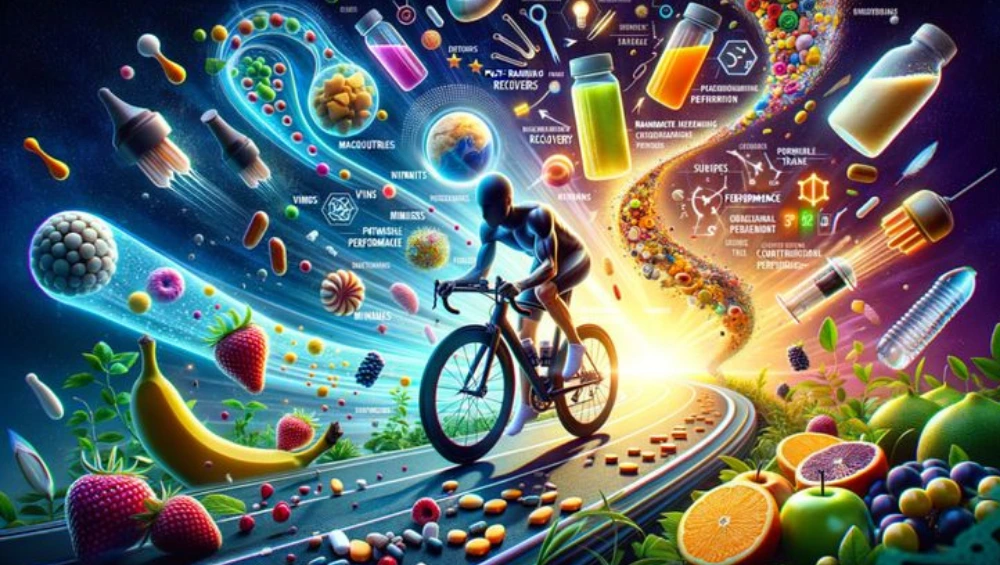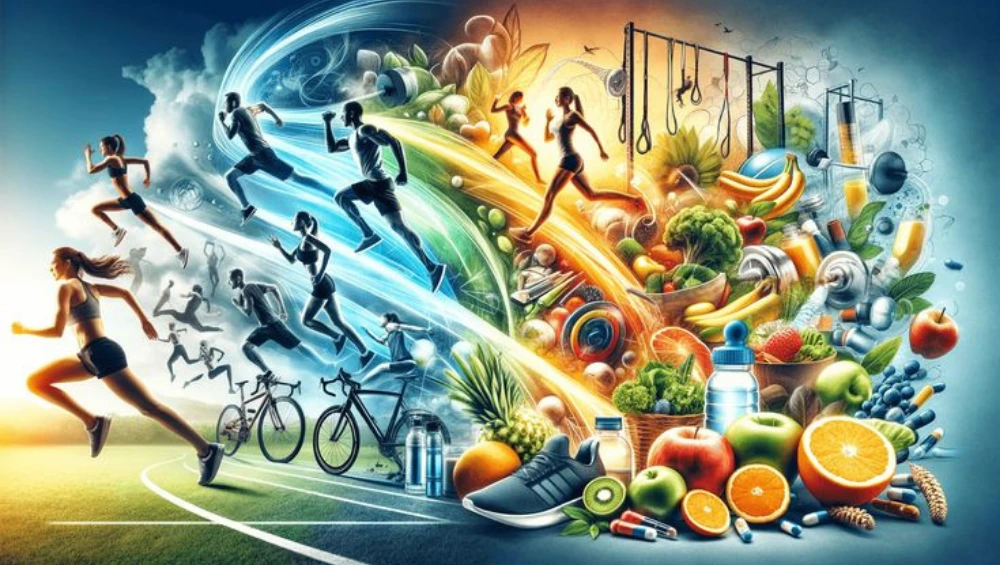Discover how sport lifestyle and recreation promote active living for better physical and mental wellness. Learn the benefits of staying active and how to make it part of your daily routine.
In today’s fast-paced, digitally dominated world, maintaining a healthy and balanced life is more important than ever. A key contributor to this balance is embracing a sport lifestyle and recreation. This term refers not just to playing sports but adopting a holistic approach that includes recreational activities, regular exercise, and active living. Whether you’re an athlete, a weekend jogger, or someone who enjoys hiking or yoga, integrating sports and recreation into your daily routine can significantly enhance both physical and mental wellness.
What is Sport Lifestyle and Recreation?
Sport lifestyle and recreation is a comprehensive approach to living that emphasizes regular participation in physical activities and sports, not just for competition, but for enjoyment, fitness, and social connection. It involves:
-
Regular physical exercise (e.g., running, swimming, gym workouts)
-
Recreational sports (e.g., badminton, tennis, football)
-
Outdoor adventures (e.g., trekking, cycling, kayaking)
-
Relaxing physical activities (e.g., yoga, tai chi, walking)
This lifestyle promotes health not through intense discipline alone, but by encouraging movement in ways that are enjoyable and sustainable over the long term.
Physical Benefits of Sport Lifestyle and Recreation
1. Improved Cardiovascular Health
Engaging in sports and physical activities strengthens the heart, improves circulation, and helps in maintaining optimal blood pressure. Activities like jogging, cycling, and swimming keep the heart healthy and reduce the risk of heart disease.
2. Weight Management
One of the most obvious benefits of a sport lifestyle and recreation is effective weight control. Regular physical activity burns calories, builds lean muscle mass, and boosts metabolism, making it easier to maintain a healthy weight.
3. Stronger Muscles and Bones
Participating in strength-based sports or activities helps improve muscle tone and bone density. Weight-bearing activities like hiking, dancing, or resistance training play a significant role in preventing osteoporosis and maintaining mobility as one age.
4. Improved Immunity
An active lifestyle supports a healthier immune system. People who consistently engage in sports and recreation often experience fewer illnesses and recover more quickly due to better overall bodily function.
Mental Wellness and Sport Lifestyle and Recreation
The impact of sport lifestyle and recreation is not limited to physical health. The mental health benefits are equally transformative.
1. Stress Reduction
Physical activity is known to reduce cortisol (the stress hormone) levels. A good workout, a swim, or even a walk in the park can significantly lower stress and anxiety. Recreational activities, especially in natural settings, act as a mental reset.
2. Improved Mood and Happiness
Engaging in sports releases endorphins—commonly known as the body’s “feel-good” chemicals. These neurotransmitters help combat depression and increase overall happiness. Team sports also add the benefit of social bonding, further elevating mood.
3. Enhanced Cognitive Function
Studies show that physical activity improves memory, learning, and critical thinking. Whether it’s a strategy-heavy game like tennis or a mindful practice like yoga, sport lifestyle and recreation nurtures the brain just as much as the body.
4. Better Sleep Quality
Active individuals often report deeper, more restful sleep. Physical activity regulates circadian rhythms and reduces insomnia, leading to improved energy levels and a better mood the next day.
Social Benefits of Sport Lifestyle and Recreation
1. Building Relationships
Sports and recreational activities offer a platform to meet people, make friends, and strengthen relationships. Whether it’s a weekly football match or a yoga class, these activities foster community and shared goals.
2. Teamwork and Leadership Skills
Participating in team sports builds communication, cooperation, and leadership skills. These skills are transferable to professional and personal life, making sport lifestyle and recreation a powerful tool for personal development.
3. Sense of Belonging
Many people find a strong sense of identity and belonging through sports-related communities. This social support network can be particularly helpful in dealing with loneliness or mental health issues.
The Role of Recreation in a Balanced Life

Recreation isn’t just about being physically active—it’s also about enjoying leisure in ways that recharge you. Recreational activities like kayaking, biking, dancing, or even playing frisbee in the park offer joy and relaxation, which are essential for a balanced life.
Sport lifestyle and recreation incorporate these aspects seamlessly, making it easier to maintain motivation and consistency. When exercise feels like play, it becomes a sustainable part of life.
Integrating Sport Lifestyle and Recreation into Daily Life
1. Start Small
If you’re new to active living, start with short walks, weekend games, or home workouts. As your fitness improves, gradually increase intensity and frequency.
2. Make it Fun
Choose activities you genuinely enjoy. Whether it’s swimming, playing basketball, or dancing, find something that excites you. The key to a sustainable sport lifestyle and recreation is enjoyment.
3. Be Consistent
Consistency trumps intensity. A daily 30-minute walk is more beneficial over time than occasional intense workouts. Make movement a regular part of your day.
4. Mix it Up
Avoid monotony by engaging in different activities. This not only keeps things interesting but also ensures a well-rounded fitness regime.
5. Use Technology Wisely
Use fitness apps or wearables to track progress, set goals, and stay motivated. Online classes and virtual communities can also keep you connected and inspired.
The Importance of Environment and Accessibility
Creating an environment that supports sport lifestyle and recreation is essential. Access to parks, gyms, sports facilities, and safe walking or biking paths can make a huge difference. Governments and local bodies play a crucial role in encouraging this lifestyle by:
-
Developing public sports infrastructure
-
Offering community fitness programs
-
Encouraging sports in schools and colleges
-
Promoting awareness about physical and mental health benefits
The Role of Schools and Workplaces
Schools can lay the foundation for a lifelong appreciation of sports and recreation. By integrating regular physical education and extracurricular activities, they help students form healthy habits early.
Workplaces, too, can contribute by encouraging wellness programs, offering gym memberships, and promoting active breaks. A company culture that supports sport lifestyle and recreation leads to healthier, more productive employees.
Challenges in Adopting Sport Lifestyle and Recreation
Despite the benefits, there are obstacles that prevent many from embracing this lifestyle, such as:
-
Lack of time due to busy schedules
-
Limited access to facilities or safe environments
-
Physical or health limitations
-
Financial constraints
Overcoming these challenges requires personal commitment, but also systemic support. Community programs, affordable sports clubs, and inclusive spaces can make this lifestyle more accessible for all.
Conclusion
A sport lifestyle and recreation is not just a trend—it is a necessity in the modern world. By embracing an active, balanced lifestyle, individuals can enjoy improved physical health, enhanced mental well-being, and stronger social connections. It is a path to a happier, healthier, and more fulfilling life.
Whether you’re an athlete or a beginner looking to be more active, integrating sport and recreation into your daily routine can change your life. The journey may start with a single step—a walk, a swim, or a game of catch—but its impact lasts a lifetime.
So, lace up your shoes, grab a ball, hit the trail, or roll out a yoga mat. The path to wellness is paved with movement, joy, and the power of sport lifestyle and recreation.





